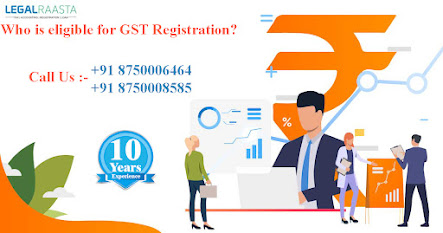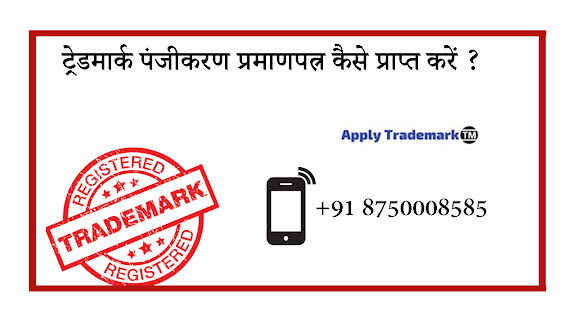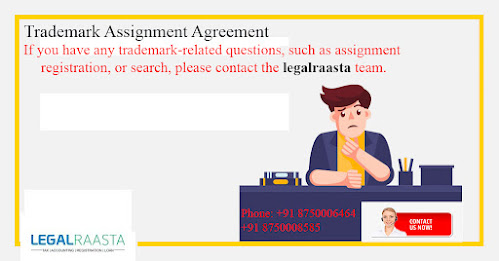Who is eligible for GST Registration?
Businesses must first assess whether they are eligible to register under the most recent indirect tax scheme before beginning the Registration for GST process. Any person or organization engaged in commercialized business must comply with the New GST Registration and Eligibility Criteria because it enables the proprietary to discharge taxes and take advantage of input tax credit. Certain enterprises must register with the GST regime.
They will face severe penalties if they conduct company operations without being registered. The GST Council states that a business entity must meet a number of GST Filing requirements in order to be eligible for GST registration. So, in this blog, we'll explain what the eligibility requirements for GST are and how LegalRaasta can help you further by describing how to fill out GST forms in an efficient and affordable way.
What is GST Registration?
The Goods & Services Tax (GST) is an indirect tax that is paid when purchasing goods or services for consumption. It is a value-added tax applied on services. Additionally, businesses that supply services and sell goods must contribute fairly to the GST. The GST eliminates the cascading effect of indirect taxes while also combining a number of separate central and state indirect taxes to provide more revenue for the government. Similar to that, the Registration for GST system went into effect in April 2017 and demanded registration from all eligible businesses.
Eligibility Criteria under GST Filing
Ø Individuals covered by the laws that were in place prior to the adoption of the GST, such as excise, VAT, service tax, etc.
Ø A company with a revenue that exceeds the 20 lakh rupee benchmark. For states like Jammu and Kashmir, Himachal Pradesh, Uttarakhand, and the North Eastern provinces of India, the ceiling is 10 lakh rupees.
Ø Non-Resident Indian taxpayer or casual taxpayer.
Ø Supplier's representatives, distributors of input services, and operators or aggregators of e-commerce.
Ø Those who pay taxes via the reverse charge method for GST Registration.
Who is a Casual Taxable Person under GST Filing?
A person without a permanent place of business who sporadically provides goods or services in an area where GST is applicable. According to GST, this person will be regarded as a casual taxpayer. As an illustration, someone who operates in Bangalore and provides taxable consulting services in Pune, where he does not, would be regarded as a casual taxable person in Pune.
Who is considered a non-resident taxable person for GST purposes?
If a non-resident does not have a permanent place of business in India but periodically supplies products or services in an area where GST is applicable. He will be regarded as a non-resident taxable person under GST. Similar to the situation above, however the non-resident does not operate a business in India.
Who is a Distributor of Input Services for GST Filing?
"Input Service Distributor" refers to a branch with the same PAN that receives tax invoices after receiving input services and issues tax invoices in order to distribute the credit of CGST,SGST,IGST paid on the stated services. It must be a provider of taxable goods or services who shares the same PAN as the office previously mentioned. Therefore, only credit on "input services” is not on input products or capital goods which can be distributed. For assesses who are not currently registered as input service distributors, this will be a novel idea. The use of this facility is, however, optional.
Who are composition taxpayers?
A composition taxpayer is a person registered under the composition scheme who is exempt from having to charge his clients the standard rates of GST. Instead, he can submit Form CMP-08 and pay tax to the government at nominal or lower rates based on turnover or receipts on a quarterly basis. For certain taxpayers, specific guidelines have been established. When the GST was first implemented, only providers of goods with an annual turnover of up to Rs. 1.5 crore were eligible to choose the composition plan covered by Section 10 of the CGST Act. For GST registration, the maximum annual aggregate turnover limit must be Rs. 50 lakh.
Who can contribute to the QRMP?
A registered person who must submit a GSTR-3B return and who has a combined revenue of up to Rs. 5 crore in the last fiscal year is qualified for the QRMP Scheme. The plan allows for the quarterly filing of GSTR-1 and GSTR-3B and the monthly payment of tax using form PMT-06. Furthermore, the Invoice Furnishing Facility (IFF) can be used if B2B sales invoices need to be published on the GST portal every month.
GST Registration by Taxable Person Type
Ø Within thirty days of the day on which they become subject to registration, each person must submit an application for registration in each State where they are required to do so.
Ø Casual/non-resident taxpayers should submit their applications at least five days before they open for business.
Ø PAN will be used as the basis for the GST registration number, hence possessing a PAN is required to register.
Ø Given that GST registration is State-specific, the assesse must get separate registrations for every State.
Ø The assesse has the choice to get separate registrations in the same State for each of the "business verticals."
Ø Special GST provisions Registration for non-resident taxpayers and occasional taxpayers
Ø A non-resident or occasional taxpayer must submit an application for registration at least five days before the start of operations. Special rules for occasional taxpayers and non-resident taxpayers under the GST are outlined in Section 24.
Ø Casual/non-resident tax payers are eligible to apply for a temporary registration that is valid for 90 days and can be extended for a further 90 days. A person that registers under Section 24 will need to pay an advance GST deposit based on their anticipated tax due.
Conclusion
The fact that the GST on immovable property may be assessed on flat maintenance fees collected by a housing association in addition to other services should be stressed. Other times, the GST law has been left vague, which has left taxpayers perplexed. To close the gaps that have been left open, the pertinent authorities must make the proper judgments. Knowing who is eligible to file for GST and what the eligibility requirements are now makes it crucial to keep your business current with the most recent GST filing in order to avoid penalties. Please use the following link to contact one of our advisors at LegalRaasta for assistance in obtaining all required documentation and registration for GST registration. A plethora of information on GST and other financial and tax-related topics may be found onLegalraasta.



.jpg)
Comments
Post a Comment